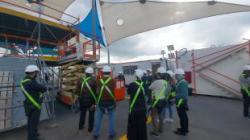
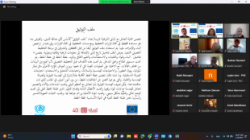
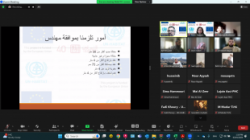
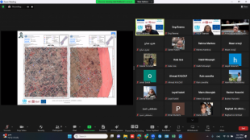
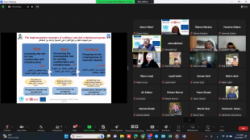
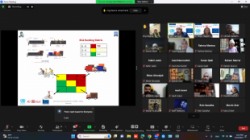
Old Cities Jerusalem, Revitalization Programme (OCJRP)-Taawon has completed two specialized training courses as part of the "Quality Urban Development and Sustainable Interventions – Rehabilitation for Revitalization" (QUDSI-R4R) project, which is funded by the European Union, managed by UN-Habitat, and partly implemented by Taawon/OCJRP.
- "Local regulations and issues for working within the Old City of Jerusalem."
- 17 engineers from Jerusalem and the West Bank participated.
- Four online sessions via Zoom and one practical training day were held.
- Topics covered:
- Introduction to Safety and Environmental Quality, using the pocket guide Safety, Security, and Environmental Quality and Working at Height.
- Local regulations and work restrictions in the Old City of Jerusalem, with a focus on the preservation of historic buildings.
- Architectural preservation within the Green Line, including a case study on preserving Shafa Amr Castle.
- "Damage and Loss Assessment, Humanitarian Charter and Minimum Standards for Humanitarian Assistance in Disaster and War"
- 37 engineers from different locations in the West Bank and Jerusalem participated.
- Twelve online sessions were conducted via Zoom.
- Topics included disaster risk reduction concepts, disaster relief basics, rapid assessment and classification of building damage, search and rescue, the Sphere Handbook, and the Humanitarian Charter.
- The participants had the task of assessing building damage in groups.
These courses are an integral part of the OCJRP's efforts under the training component, which aims to improve the technical and professional skills of specialists, civil engineering students, and workers involved in preserving Palestine's architectural and historical heritage. The training component is one of the main components of the OCJRP, along with restoration and conservation, documentation, and public awareness. #OCJRP #Training courses #Historic heritage preservation #JerusalemRevitalisation #EU_Funded #UNHabitat #Taawon
